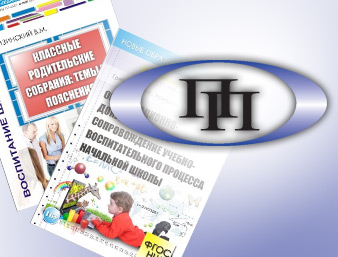
Воспитательная деятельность и педагогическое поведение учителя как важнейшие формы профессиональной деятельности
Внешние формы педагогического воздействия также как и вербальные и невербальные способы влияния могут быть и порой воздействуют на детей положительно, отрицательно или никак.
Одежда и ее атрибуты, прическа, походка, осанка, взгляды, наклон головы, держание паузы, манера глядеть на детей, улыбка и выражение гнева, манера письма и роспись, цвет чернил и форма цифровой оценки, усталое безразличие, украшения, любимые выражения и цитаты – да мало ли что еще незаметно воздействует на детей, отталкивая или привлекая их, и порой очень сильно влияя на их поведение, отношения, оценки, будущую жизнь.
Некоторые учителя всю свою жизнь не могут или не хотят избавиться от некоторой клоунады, фокусничества, ерничества, заискивания, чем стараются понравиться детям, но все это из разряда внешних влияний, которые могут привлечь неразвитые души и ненадолго, но вряд ли привлекут подростков развитых и думающих.
Еще до предмета, еще до всевозможных методик, личность учителя во множестве ее проявлений так привлекательна или отталкивающе неприятна детям. Классики считали, что учитель должен быть молодым и красивым, естественно они имели в виду психологический возраст и молодость души.
Отменяя классическую дидактику, пойдем по пути ложных инноваций
Все больше становится педагогов, которые из арсенала своей деятельности полностью выбросили воспитание.
Произошло это по ряду причин, причем не только потому, что ЕГЭ как стратегия не нуждается в воспитательном воздействии и взаимодействии с детьми, не только потому, что знаниевая парадигма с ее муштрой, приказами, давлением, требованиями, насилием над детьми, с ее двойками и жестокой эксплуатацией памяти не нуждается в любовно-дружеском отношении к детям, не только потому, что изощренный административный ум заменил воспитание как систему некоторым набором больших и малых мероприятий, не только потому, что учитель быстро осознал, что между разговорами о духовно-нравственном и патриотическом воспитании и реальным системным подходом к воспитанию дистанция огромного размера, не только потому, что стандартизация, зашоренность, усталостные характеристики, профессиональное выгорание, страх перед тестовой несостоятельностью, – все эти и другие причины в совокупности позволяют явочным порядком покончить и с воспитательными системами, и с воспитанием как планируемым системным процессом, охватывающим всю жизнь и работу школы.
Теперь всякая школа нуждается только в том, чтобы не было очевидных случаев детской распущенности, детских правонарушений, и чтобы присутствовала видимость – самоуправления, самодеятельности, социальных практик, детского творчества, наличия и формирования лидеров.
Teacher’s social education activities and pedagogical behavior as essential forms of professional activities
External forms of pedagogical intervention, as well as verbal and non-verbal ways of influence, may and occasionally have a positive, negative or no influence on children.
Clothes and accessories, haircut, manner of walking, posture, glances, head inclination, length of pauses, specific looks at children, smiles, expression of anger, handwriting and signature, grade color and shape, exhausted indifference, personal adornments, favorite expressions and quotes – we may still continue the list of things which make an inconspicuous influence on children by attracting or pushing them away and, at times, greatly affecting their behavior, attitudes, views, and their future.
Throughout their entire professional career some teachers are unable or unwilling to get rid of some clownery, cheap focus tricks, mockery or toadyism used with the sole purpose to be liked by children. However, all these are external forms of influence, which may keep the attention of immature souls for a short time, but they will most probably fail to attract intellectually developed and thoughtful teenagers.
Even before the teacher starts the class or applies various teaching strategies and techniques, his or her personality in the whole range of its dimensions may be appealing or equally repulsive to children. Great philosophers and educators used to say that a teacher must be young and beautiful. Of course, they naturally meant the teacher’s state of mind and psyche.
Let us discard classical didactics and embrace false innovations
An increasing number of teachers have completely excluded social education from their professional activities. This was caused by a number of reasons. It was not only because the Unified State Exams as a given reality does not need social education and interaction with students. Nor was it only because the knowledge-centered instruction paradigm with its drills, orders, pressure, requirements, unsatisfactory grades, and cruel abuse of students’ memory does not need affectionate and friendly attitude towards children. Nor was it only because the sophisticated administrative mind replaced social education as a system with a set of major and minor activities. Nor was it only because the teacher has quickly realized that there is a huge gap between talks about spiritual, moral and patriotic education, on the one hand, and real systemic approach to social education, on the other. Nor was it only because of standardization, narrow outlook, fatigue factors, professional backwardness or fear to fail tests. All these and other reasons put together make it possible to easily eliminate both with social education systems and social education as a goal-oriented systemic process fully encompassing school life and work.
What is left for any given school? That is just to avoid obvious cases of juvenile vulgarity or offence while pretending at the same time to possess active school self-governance, initiatives, social practices, students’ creativity and leadership. Fighting against Article 278, the school must not only kiss boots but also be able in cooperation with some powerful students’ parents from law enforcement agencies, to hide teenagers’ crimes or offensive social behavior.




